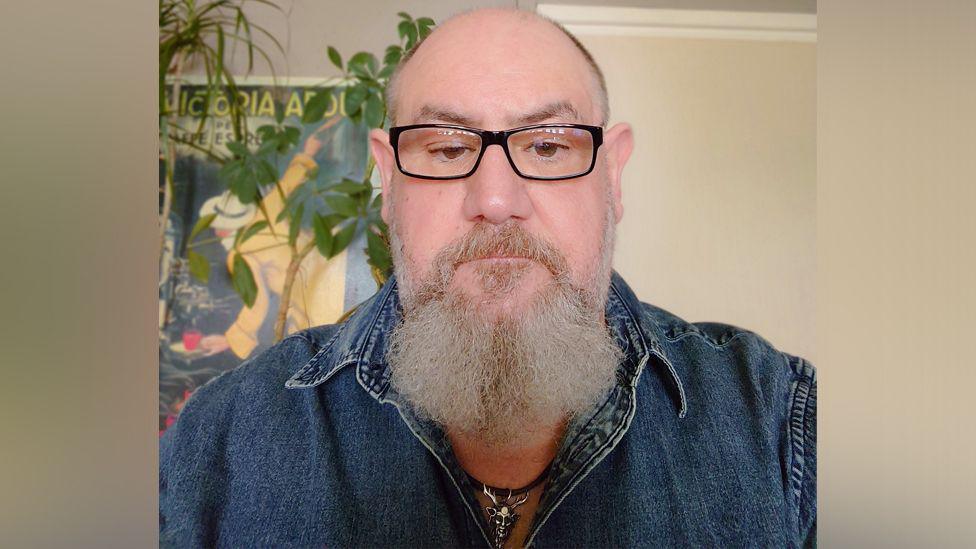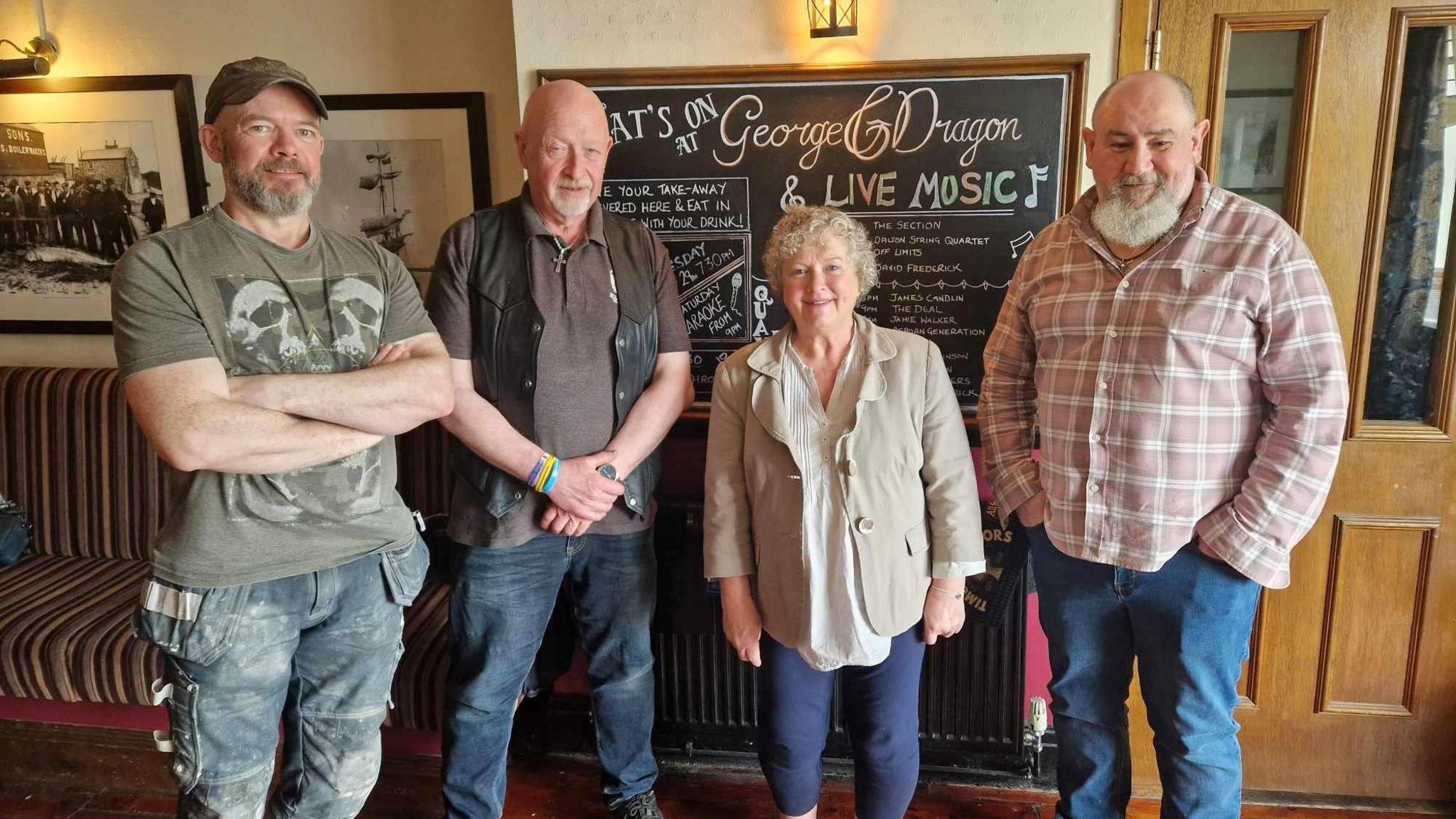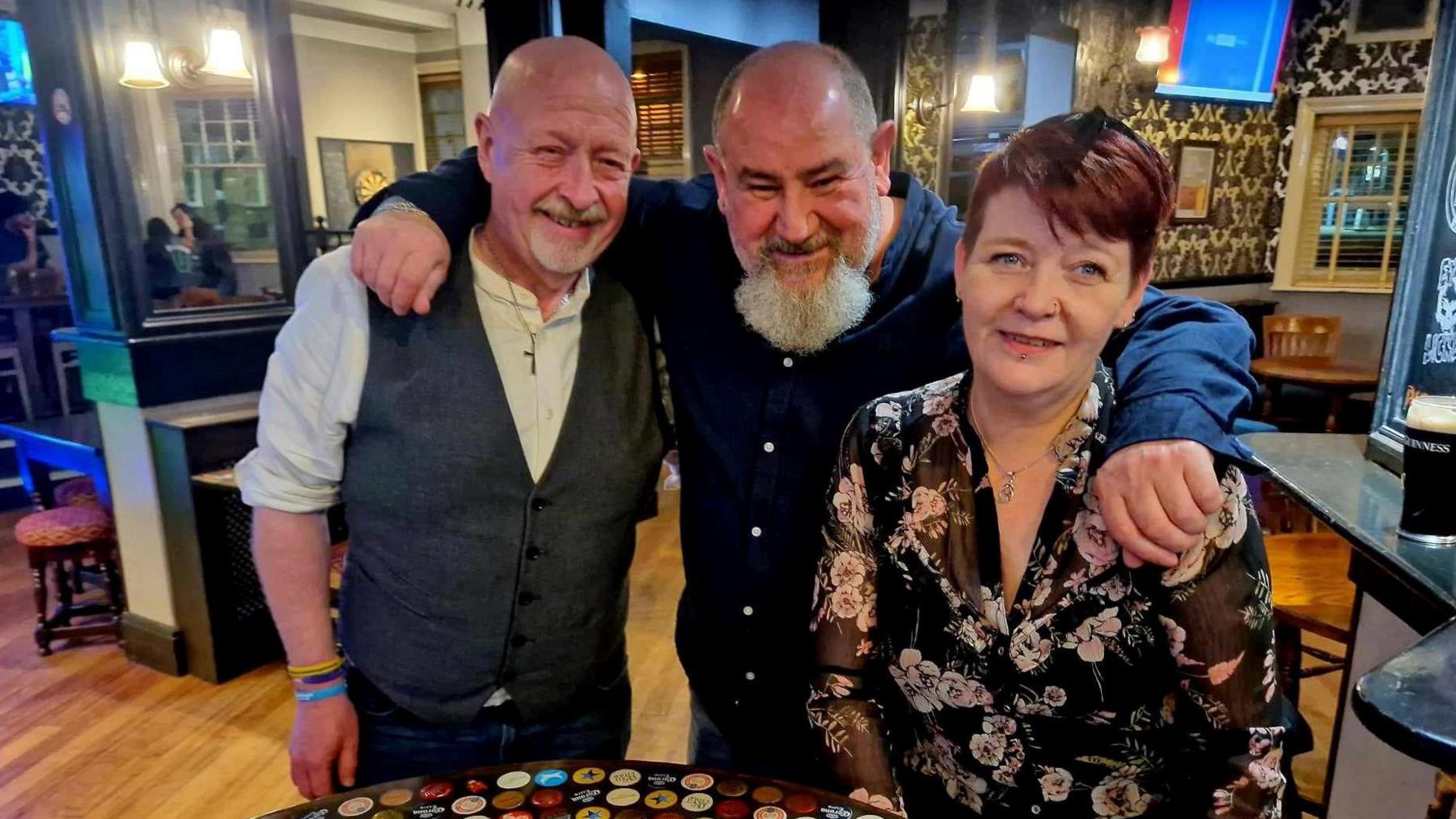'Autism diagnosis could finally give me answers'

John Rawcliffe has told how he came to better understand his symptoms only in late adulthood
- Published
A man who spent his childhood "being told I was the stupid kid in class" is now expecting an autism diagnosis more than 50 years later - and said it could finally provide the answers he has been searching for.
John Rawcliffe, 63, has spent most of his life wondering why he is different and has struggled to communicate and understand others.
The former salesman, from Lancaster, has been waiting nearly two years for a diagnosis so he can access support, after the NHS admitted a surge in demand for assessments has heaped pressure on services.
However, he has now taken matters into his own hands and set up a support group for those in a similar position while the "system is swamped".
'Becomes exhausting'
Mr Rawcliffe was diagnosed with dyslexia at the age of 30, and 20 years later said he found himself identifying with a BBC Breakfast programme on aphantasia – which leaves some people unable to visualise mental images.
It was not until the age of 60 when he began to believe he was autistic.
"I struggle to communicate, to understand people and emotions. Getting myself to do something is quite a struggle sometimes," he said.
On his memory, he added: "I can tell you about the events that have happened in my lifetime but I don’t always remember them."
Growing up Mr Rawcliffe said he did not have many friends, which was "common for those with autism".
"Simple things, rules about how to engage in conversation, when to butt in, when to nod, a lot of autistic people miss those skills - it becomes exhausting, " he said.

Pictured L-R: Friends Dave Lane, Andrew Reilly, Carol Chesters and John Rawcliffe
His first referral for a diagnosis appointment came in June 2021 before a series of delays, including doctors admitting they had “lost his referral”.
He believes further delays were prolonged following a growing awareness of autism in mainstream culture - including various TV programmes - leading to more people coming forward.
“Obviously I am not blaming that, but now the doctors can only tell me there is nobody to assess me,” he said.
Prof Sarah O’Brien, chief nursing officer for Lancashire and South Cumbria Integrated Care Board, said demand for assessments across the catchment area had increased by 93 per cent since October 2022 and has remained at an increased level.
She said: “This increase is in line with national demand for autism assessments across England and is putting pressure upon all assessment and diagnostic services.
She added that while plans were in place to boost waiting times, "significant" investment would "still not be able to meet demand".
'Understand better'
Mr Rawcliffe said he remembered having "stims" as a child - a wide variety of self-stimulating behaviours that people with autism may exhibit when experiencing sensory overload or high levels of anxiety.
"For me it was tapping, making strange noises, chewing, blinking a lot, sudden movements," he said.
"All of those were encouraged out of me, I was constantly told off but I know now they were all ways for me to regulate that energy."
He said because he went to school in the 1960s and 70s he was told he was "stupid".
"I was the stupid idiot, put to the back of the class and told we don’t expect anything out of you. So realising there is a reason for that is validating.
"It also makes me angry because 60 years of my life I have had a problem that could have been dealt with better if people around me understood me better and if I understood myself better."
He said he had spent most of his life "masking" - hiding his symptoms to "try and fit in".
He said: "You get to a point where you can’t cope with it anymore. Masking can be extremely draining.
"It is very rare you take the mask off, especially if you’re diagnosed late, because it is ingrained."

Pictured L-R: Andrew Reilly, John Rawcliffe and Maddy Howard, admin of the group
Mr Rawcliffe said he began to look for local support groups so he could speak to people about his symptoms but struggled.
He and a friend then decided to set up Adults with Autism., external
The group runs fortnightly support sessions at the George and Dragon pub on St George's Quay in Lancaster.
Mr Rawcliffe said: "It is a safe space where people can talk, about the silly things or the more serious, of how it has affected their life and to understand you are not alone.
"No two autistic people are identical but we all share a common theme and this group gives the ability to talk about that.
“One of the group members described a late diagnosis as mourning your childhood and I think that's very apt.”
'Massive difference'
Carol Chesters uses the group for support for herself and her 34-year-old son.
The 66-year-old lives in North Yorkshire but travels to Lancaster for the group.
She said: "I simply wanted to meet ordinary people preferably with autism or in a late diagnosis situation for myself and my son.
"As a parent of someone who is late diagnosed it is a very difficult journey. There has been negative press about lots of people coming out now wanting a diagnosis. I sort have imposter syndrome in that the doctor won't believe me due to my age but I am identifying with a lot of people."
Joey Nettleton Burrows, policy and public affairs manager at the National Autistic Society, said there is a "nationwide crisis in diagnosis waiting times" with more than 183,000 people waiting for an autism assessment in England.
“An autism diagnosis can make a massive difference to people’s lives and is often vital to getting the right support," he added.
“It shouldn’t be the case, but an assessment means people have a better chance of getting support in education, employment or just their day-to-day lives."
Listen to the best of BBC Radio Lancashire on Sounds and follow BBC Lancashire on Facebook, external, X, external and Instagram, external. You can also send story ideas to northwest.newsonline@bbc.co.uk, external